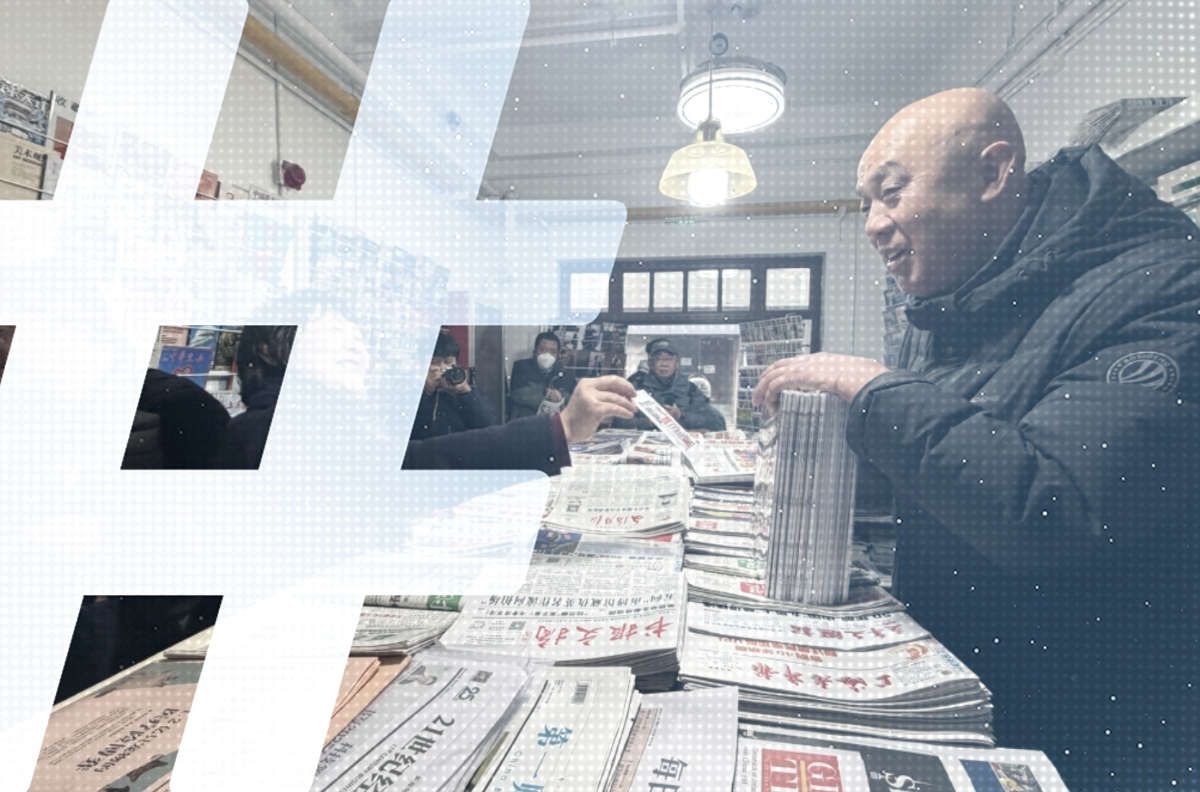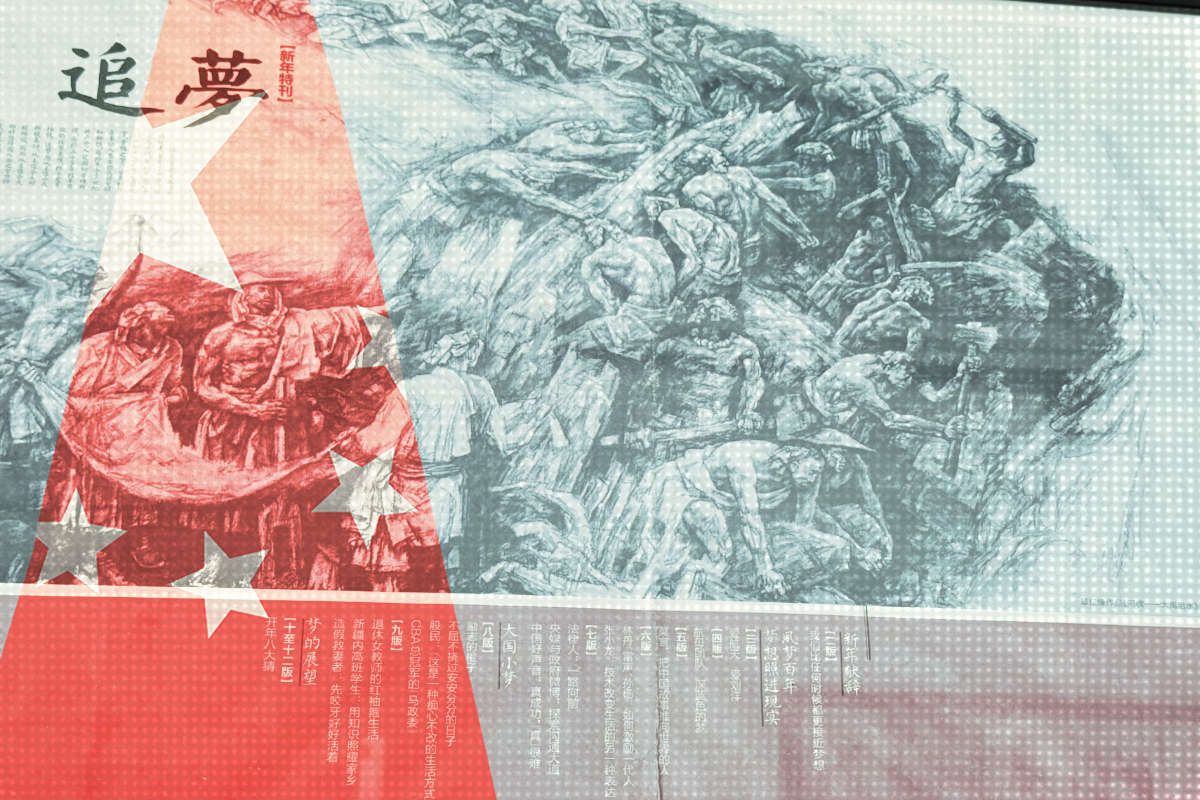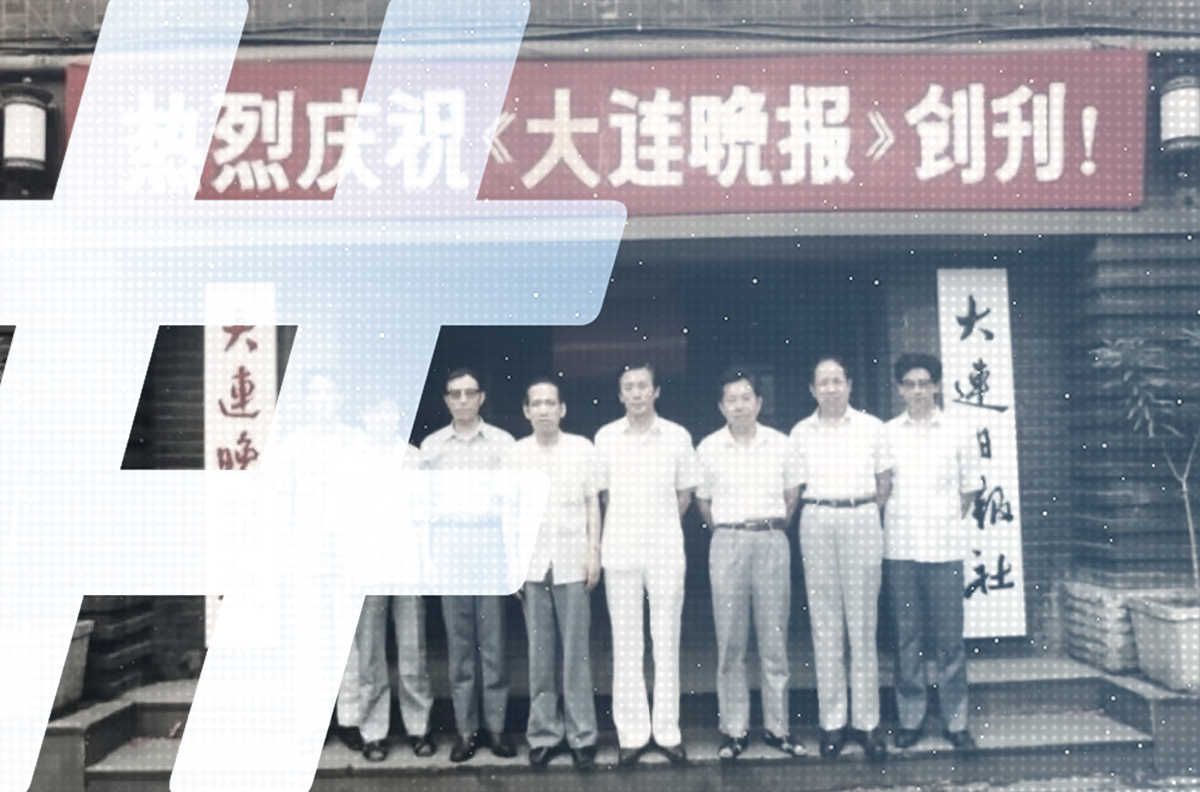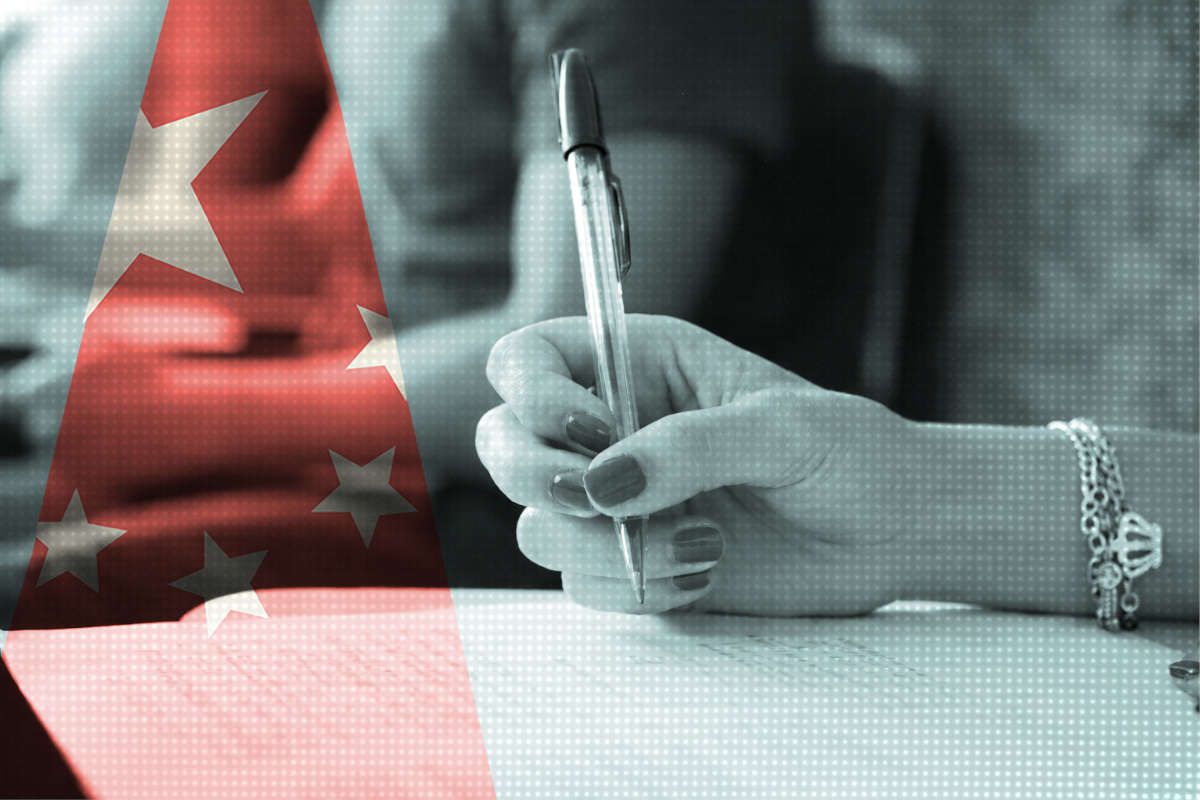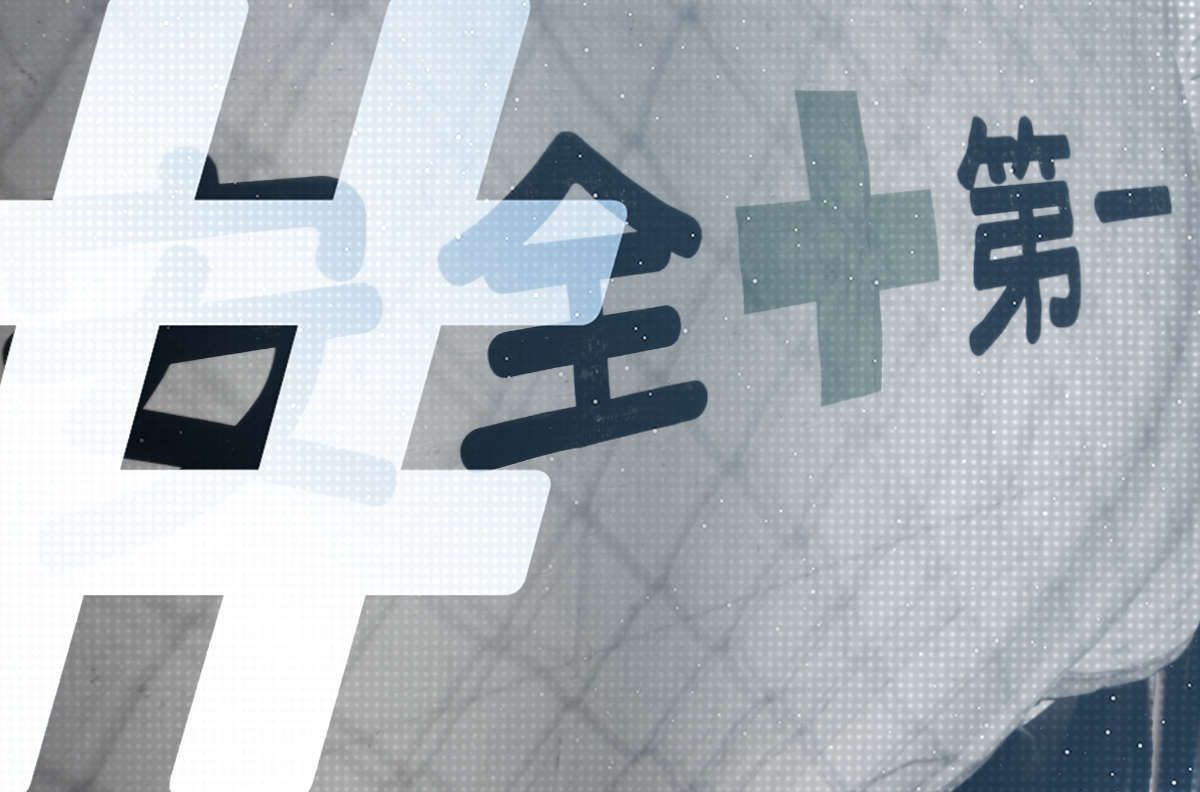Earlier this month Beijing’s Sanwei Shuwu bookstore [blog here] organized a lecture by Xin Ziling (辛子陵) called “The Political Reform Question.” The lecture, scheduled for 3 p.m. on Saturday, October 16, was suddenly cancelled and replaced with another lecture on rule of law by Xiao Han (萧瀚), a professor at China University of Political Science and Law.
Sanwei did not specify the reason for the cancellation, but it should be noted that Xin Ziling was one of the 23 Party elders who penned an open letter on October 11 calling for freedom of speech in China.
Xin, a former official at the China National Defence University, is also the author of The Accomplishments and Sins of Mao Zedong (千秋功罪毛澤東), a book assessing the legacy of Mao.
Xin Jiling’s original lecture for Sanwei Shuwu has now been posted online, and the piece has drawn a flurry of interest today.
A portion of the lecture follows. In it, Xin attacks those who seek, as he sees it, to hijack the political reform debate with the outdated “theory of delimitation” — distinguishing between “proletarian” democracy and “bourgeois” democracy — which he calls a “protective amulet . . . for single-party dictatorship” handed down by Bolshevik leader Vladimir Lenin.
We recommend that readers of Chinese review the comments beneath Xin’s essay at Chinavalue.net, including Xin’s own remarks. There is plenty of discussion there of yesterday’s People’s Daily piece as well, which is a good counterpoint to Xin’s arguments.
The Political Reform Question
October 16, 2010
By Xin Ziling (辛子陵)
Political reforms in China have dragged behind and scarcely budged, retarded by instinctual resistance from networks of influence and power. The protective amulet of their Leninism is the “theory of delimitation” (划界论). I’ve written an essay called, “Challenging One Paper and Two Magazines, Overturning the Theory of Delimitation,” which I posted online. It sets out to thoroughly overturn and shatter this “theory of delimitation.” [NOTE: “One paper and two magazines” (两报一刊) refers to the complete monopolization of the press by political power, particularly under Mao Zedong, but refers more directly in this case to recent pieces of conservatism on political reform appearing in prominent Communist Party newspapers.]
As soon as the winds of political reform start to blow, the writing hands of the mainstream media [NOTE: this means “Party media”] turn out to clearly delimit the issue. They ask whether we are surnamed Proletariat or surnamed Capitalist (姓无姓资), and they draw a clear line between bourgeois democracy and proletarian democracy. On September 4, the Guangming Daily came out with this piece called, “Two Democracies of Different Natures Must Not Be Confused,” [https://chinamediaproject.org/2010/09/06/7345/]. The same day, the Liberation Army Daily issued a piece written by Jiang Ganlin (蒋干麟), the head of the People’s Liberation Army’s Nanjing Political Studies Academy, which spoke of the need to delimit “four crucial boundaries.” Issue 18 of the journal Seeking Truth ran a piece under the headline, “The Institutional Superiority and Basic Characteristics of Socialism with Chinese Characteristics,” which also urged the need to “clearly delimit the differences between the democracy of socialism with Chinese characteristics and Western capitalist democracy.” The Party media [NOTE: The term used here is “one newspaper and two magazines.”] are lining up for battle, puffing up for opposition to political reform.
This theory of “delimitation” is a legacy passed down from Lenin, our patriarch, and the representative work in question is, “The Proletarian Revolution and the Traitor [Karl] Kautsky.” Lenin said at the time that “proletarian democracy is more democratic by a factor of 100 than any other form of democracy; Soviet political power is more democratic by a factor of 100 than even the most democratic bourgeois republic.”
[1]. There are two key positions behind this thinking. The first is class theory, that in the democratic system of the proletariat, the worker’s classes, the peasants the masses of ordinary people rule the country, and this has class superiority. Then there is [the superiority arising] from numbers theory, in that the worker’s classes, peasants and the ordinary masses account for more than 90 percent of the national population, and this means superiority of numbers. Lenin said: “The proletarian democratic system (of which Soviet political power is one form) exists for the vast majority of people, and for the expansion of democracy across the world to a level never before seen for the sake of exploited labor.”
[2]. Once these two positions were admitted, the opposition withered. For decades ever after, the Communist Parties of the various socialist nations of the world took this up as their protective amulet, confidently going ahead with their single-party dictatorships.
The people still subscribed to this idea was during the first generation in these socialist nations. Once political power had been violently seized, who would rule if the chiefs did not? With the second generation, a crisis of legitimacy emerged, and by the third generation we had the disintegration of the Soviet Union, dramatic change in Eastern Europe, and new paths of reform and opening in China and Vietnam.
This protective amulet that Lenin created for single-party dictatorship was issued in 1918, more than 90 years ago. There have been fundamental changes since to the proletarian democratic system and the bourgeois democratic system. These fundamental changes can be seen in the transposition of these two. The so-called “proletarian democratic system” has gradually transformed into a system representing a small capitalist elite holding political power (in China and North Korea, for example), and the “bourgeois democratic system” has grown beyond the scope of the wealthy to become a democratic system of the whole people (as in the United States and the nations of the European Union) in which the vote has become a powerful weapon by which ordinary people protect their rights and interests.

